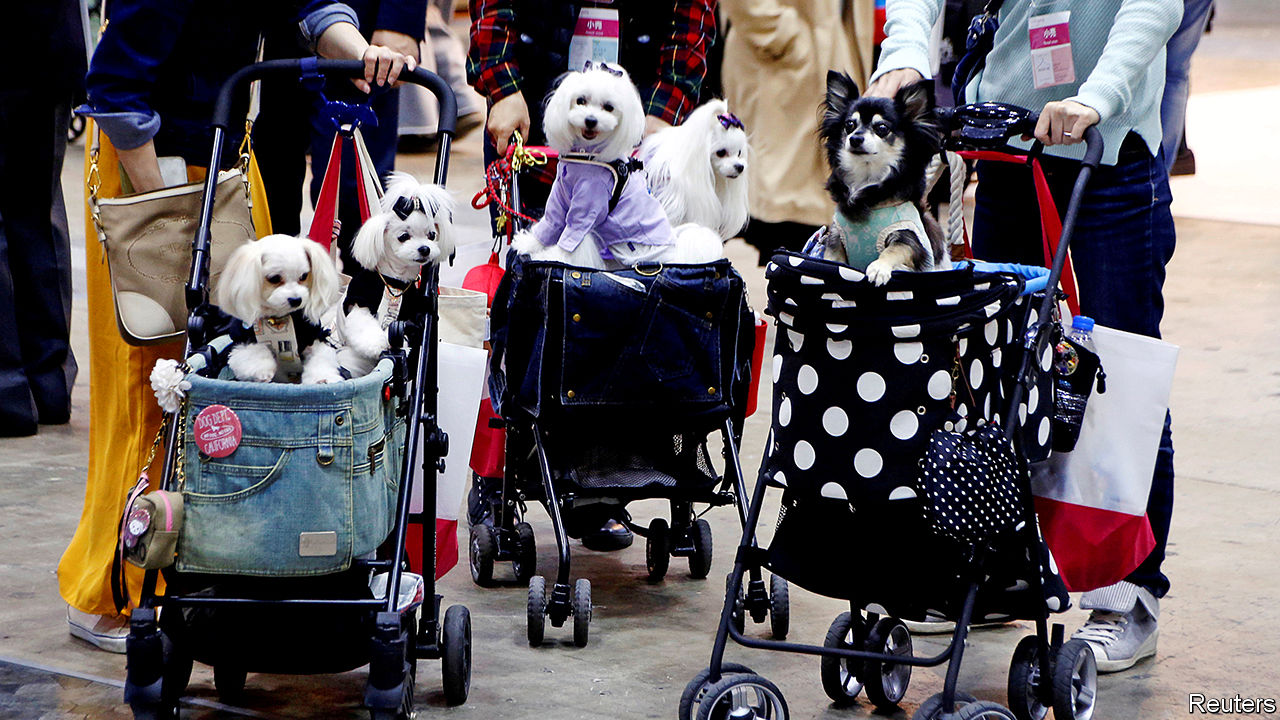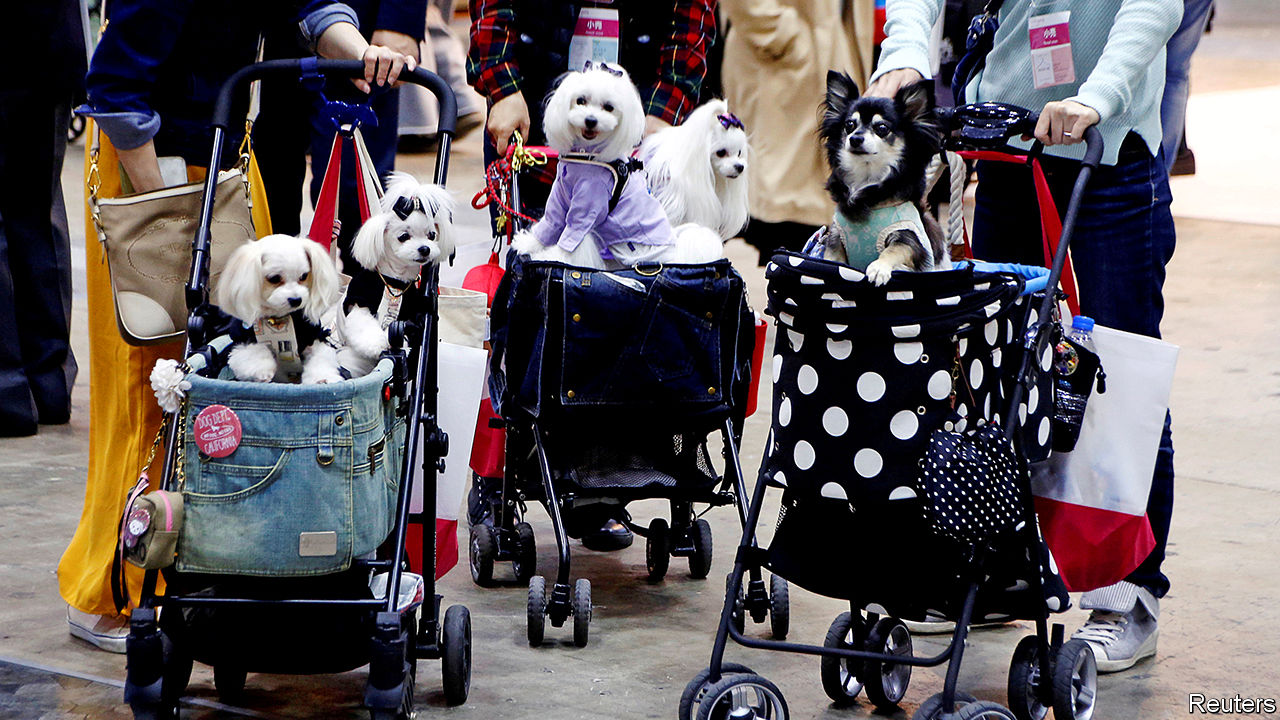
Japan pampers its pets like nowhere else

A FEW LAPS of the pool can help prevent diseases in later life, stave off obesity and maintain ageing joints—for dogs as well as humans, claims Wanwan (“Woof-woof”) Fitness, a sports club for pooches west of Tokyo. Dogs can take swimming classes, but for those that don’t like getting wet, there is the option of a 30-minute session on the balance ball for 4,000 yen ($36). If Rover needs to “relieve tension” over a lost bone or a cat that got away, Wanwan has a balm for that too: an aromatherapy massage using oil matched to the dog’s character.
In parts of Tokyo it is rare to see a dog unclothed. They are often trussed up in a T-shirt and jeans or the latest fashions from expensive boutiques. Socks or shoes to protect paws from perils like broken glass are becoming popular. A new kit on the market this autumn contains emergency supplies for dogs in case of an earthquake.
It is common for a parent taking a baby for a stroll to exchange a look of solidarity with another pram-pusher, only to glance down and realise the other’s contains a furry friend. Greying Japan is alert to animal ageing, too: there are acupuncture services for elderly pets, and several firms offer funerals.
The pet industry really took off in the 2000s; since 2003 there have been more pets than humans under 15 in Japan. The absolute number of pets is now falling, but the industry is still growing healthily. Yano Research Institute, in Tokyo, reckons annual sales are around ¥1.5trn ($1.3.bn). More speculatively, Kasuhiro Miyamoto of Kansai University estimates that the cat craze alone contributes ¥2.3trn to the economy, if one includes such things as tourism to Japan’s dozen-odd “cat islands”. Felines last year overtook dogs as the pet of choice.
Masahiro Yamada, a sociologist, puts the popularity of pets down to changes in the Japanese family. People have fewer relatives or don’t get the affection they crave from them. “People have a need,” he says. Some dead doggies are even given a place in the butsudan, the Buddhist shrine that families keep at home to pay respects to deceased relatives.
Animal activists are pushing for more protection for pets. In the 17th century under one animal-loving shogun, it is said that a samurai who slew a dog was ordered to commit seppuku, ritual suicide by disembowelment. Standards have slipped. Although Japanese are keen to share Instagram images of handbag-sized pedigree pooches, few adopt abandoned pets. As a result, thousands of strays are gassed to death every year.
